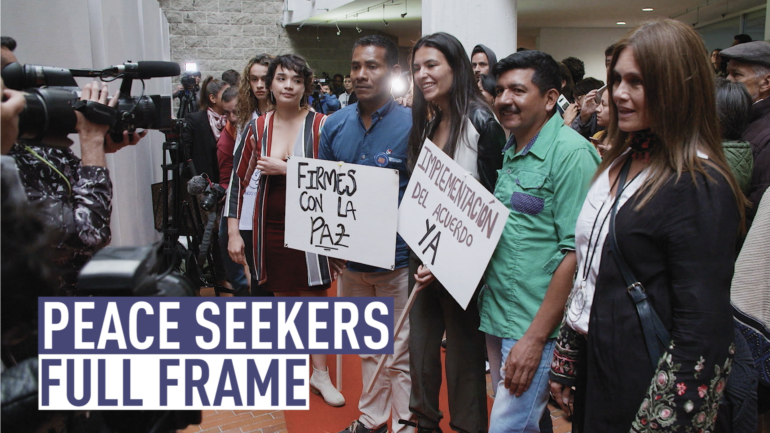Armed conflicts and violence have displaced nearly 90 million people worldwide. But with international relations strained, is there a way forward for peace?
Path of Nonviolence
Humanitarian and founder of The Art of Living, Sri Sri Ravi Shankar has been advocating nonviolent solutions to global conflicts for the past four decades.
Sri Sri was part of the peace process that ended five decades of fighting between the Colombian government and guerilla groups, the largest being the Revolutionary Armed Forces of Colombia, better known as FARC. For his involvement, he was awarded the Simon Bolivar Order of Merit, the country’s highest civilian honor.
“I said, ‘I stand for social justice, but the path of violence is not good.’ So I insisted that if they follow the path of nonviolence, then every sane person on the planet would support them. And fortunately they agreed on that,” Sri Sri said.
World peace and inner peace are connected, saying “Inner peace, I feel, is the key for outer peace.”
Sri Sri noted that mental health worldwide has suffered since the pandemic started. Breathing techniques and meditation can help, he said. “A strong mind can carry along a weak body, but not the other way around. A weak mind cannot carry along even a strong body. So mental health is an area we need to attend today in the world,” he said.
“A strong mind can carry along a weak body, but not the other way around. A weak mind cannot carry along even a strong body. So mental health is an area we need to attend to today in the world,” he said.
Reconciliation
Although the peace deal was brokered in 2016, uniting Colombia has proven more challenging than the fighting itself. But one factor unites most citizens: a longing for peace.
A Framework for Peace
In South America, a territorial disagreement lasted more than half a century. For 57 years, Andean neighbors Peru and Ecuador disputed over a piece of the Amazon jungle. It pushed them to go to war on three different occasions.
“It took us many years to cure the situation in Ecuador and in Peru. Now we are living in peace side by side. Each party has to renounce something,” said Hernan Perez, Ecuador’s Permanent Representative of Ecuador to the United Nations and Ecuador’s former minister of public education.
Perez sat at the negotiating table to finally settle the dispute. He now sits on the UN’s Security Council.
Perez said the experience has shaped his current role in the UN.
“In the [UN Security Council], we are facing hot spots, very critical, very difficult situations. Now, each time I sit there and … we debate issues like Sudan or Ukraine, I somehow in my mind recall the days and months of negotiations that I had back in 1995-1996 that helped us to close this chapter that divided us,” Perez said.
He added, “We have to build a framework of peace from the very beginning. We have to think that will… stop the wars or at least to manage the conflict in a different way.”
 CGTN America
CGTN America
